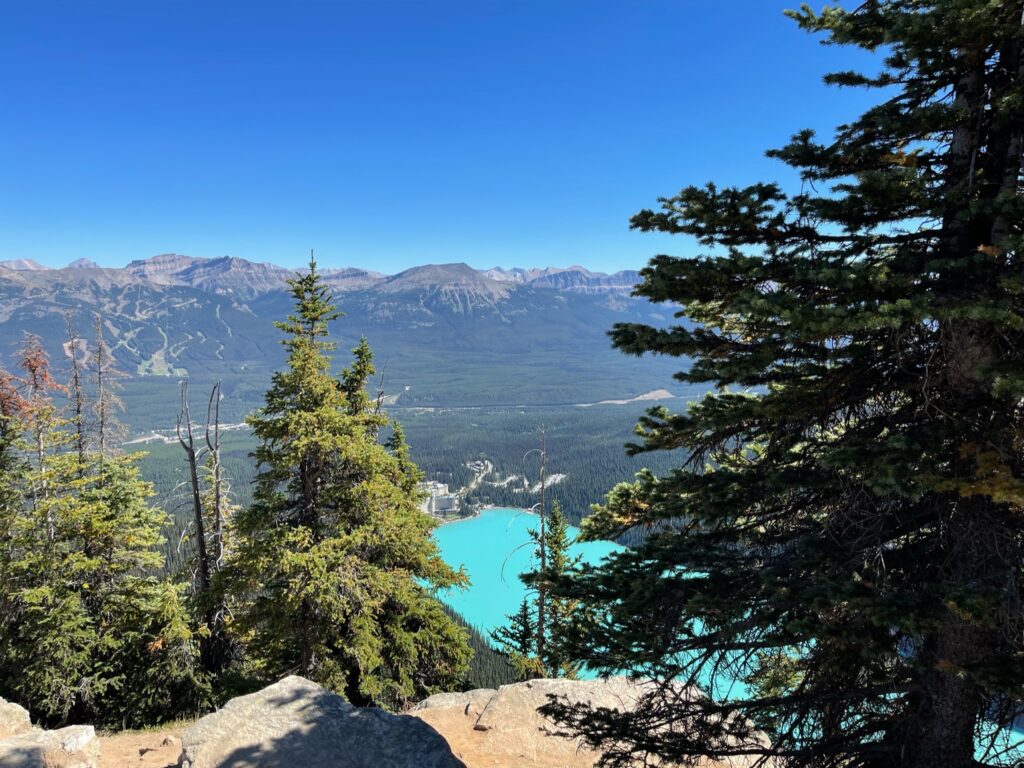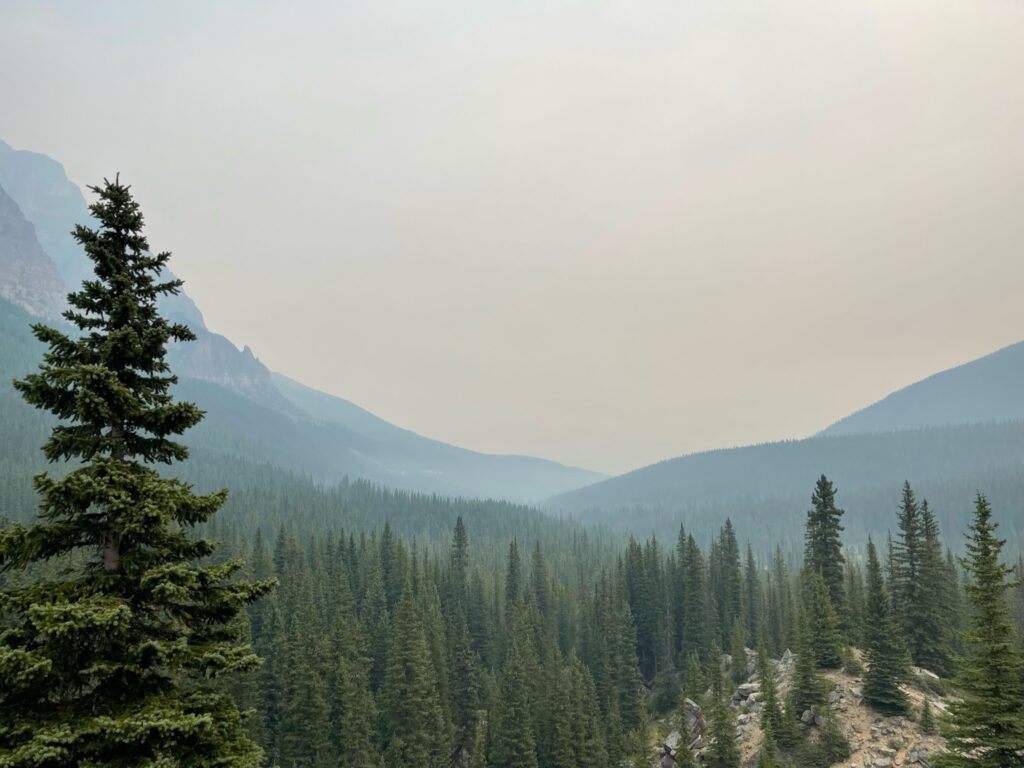If you live in an area that is prone to wildfires (like Alberta, BC, and California), then you know that wildfires are not fun to experience. Even if you are at a distance away, they spread with such speed and can impact cities that are miles away. I personally have experienced being in close proximity to a wildfire and I can tell you: if I had the choice, I would have skipped out on the experience; however, sometimes in order to truly understand the severity of a situation, you need to experience it first-hand and that’s what compelled me to write this article. That being said, I have not needed to evacuate the cities I was in, and yet the smell of smoke was so strong that it can make anyone (especially vulnerable individuals who have a sensitivity to smell) become ill. Imagine the impacts that the community experiencing the wildfire directly needed to go through. I’ve went into a coughing fit and had my eyes sting walking through smoke. As a person who loves adventuring outdoors, I quickly loved the idea of staying inside and and closing all windows to make sure the smoke does not seep through. If it does, I doubt any amount of febreeze can fix the intense scent.


I’ve had the opportunity to view Alberta at its best (clear skies and sunny days), but I’ve also seen it during its wildfire days. The smoke made it difficult to see great distances away. Mountains that were usually very clear to view have been covered by intense smoke. Such beautiful landscapes have suddenly lacked energy (probably because the majority of people were hiding indoors) and was very gloomy.
In fact, the Centers for Disease Control and Prevention listed the following effects on smoke on one’s health: coughing, trouble breathing normally, stoning eyes, a scratchy throat, runny nose, irritated sinuses, fast heartbeat, tiredness, an asthma attack, headaches, chest pain, and shortness of breath.
The bottom line: healthy or not, smoke can be damaging to an individuals health.
Not to mention, of course, the environment’s health is at stake here. But for the sake of this article, I am going to focus on the human aspect of wildfires and leave the natural aspect for another day.
It is important to note that not all wildfires are bad, as some fires play a natural part in the landscape and we must learn to manage and address them accordingly; however, most fires are actually human caused.
Approximately 85% of wildfires in the US are human caused. 9 out of 10 wildfires are caused by humans. That means it could have been prevented. Of course, global warming is making fires easier to get triggered, with warmer temperatures and more sensitive natural grounds. But that just means we need to be more careful. Not all of these acts of arson will be intentional. Often times, individuals lack awareness of what can cause a wildfire.
The U.S. Department of Interior and American Red Cross are among a few organizations who have highlighted ways in which we can prevent wildfires. I encourage every individual to check out the linked articles above. Furthermore, since every geographic location is unique in terms of its environmental context, please contact that particular city authority (whether through their website or if you would like to speak to an official in-person) you are living in and visit in terms of how to best go about preventing environmental damage.
If we learn how to take proactive action and try to prevent these events from occurring more than necessary, we are lowering the amount of human deaths, human illnesses, property damage, and environmental damage caused by wildfires. The U.N. Environment Programme (UNEP) and GRID-Arendal predicted that by 2030 there will be an increase of 14% in extreme fire events. That increase will become by 30% by 2050. Imagine if we could try to prevent these events from occurring more than what is natural so that we can use these funds to address other pressing issues. We need to educate ourselves on where we live. If you are visiting a wildfire prone area, please learn about the area and how to go about your visit safely so that you are not negatively impacting the community you are visiting and the people surrounding you. Consider the impact these events will have on yourself, others and the environment.
Until next time,
Adena